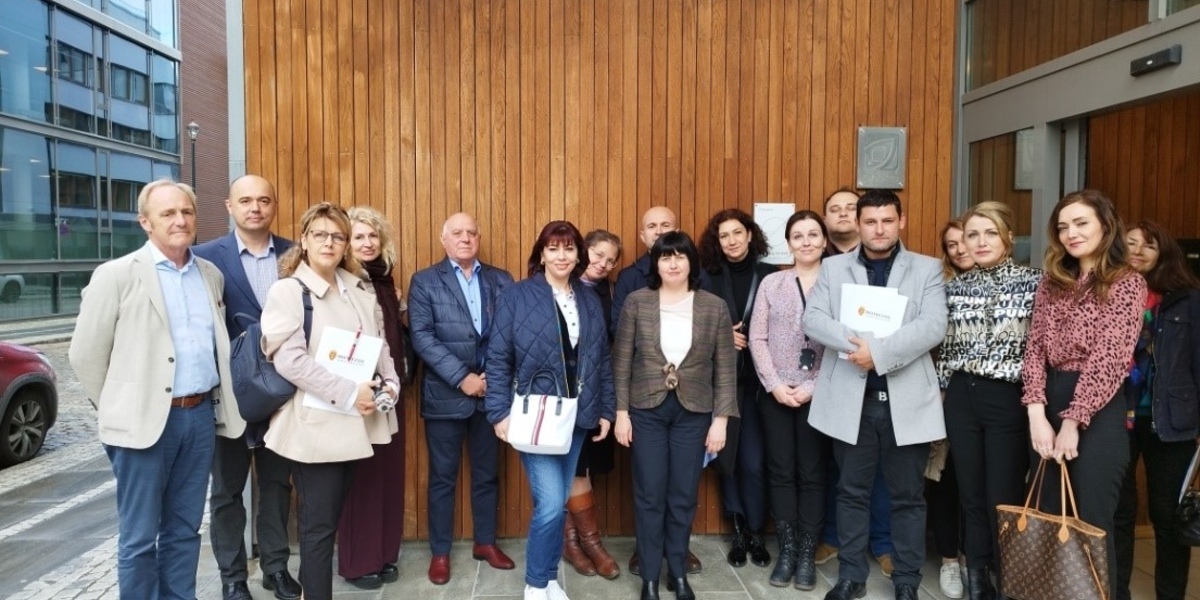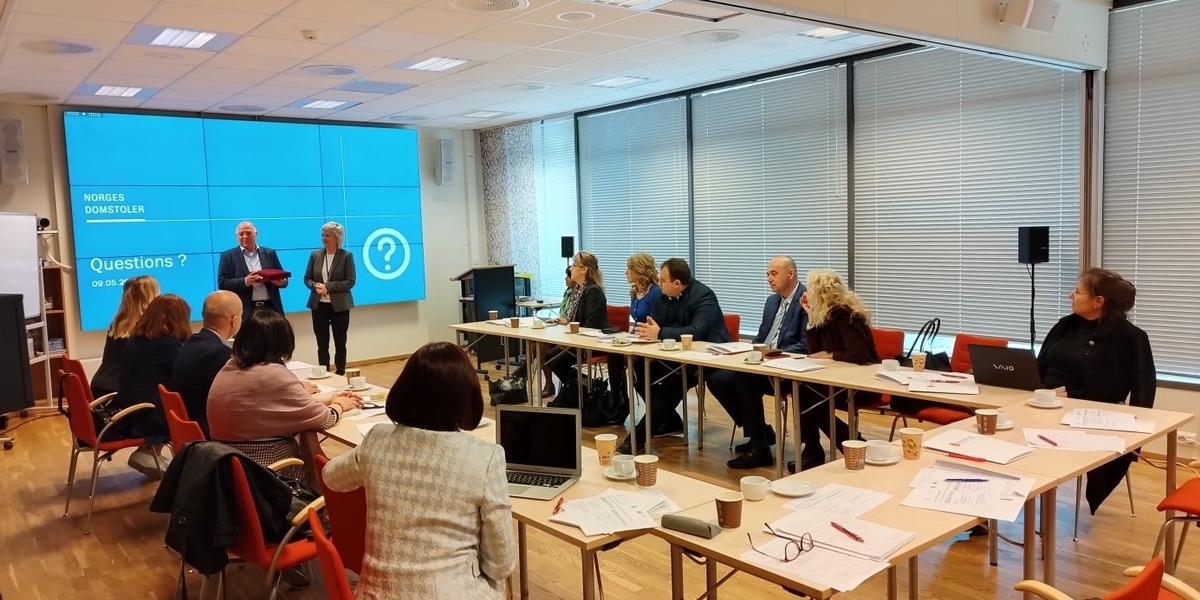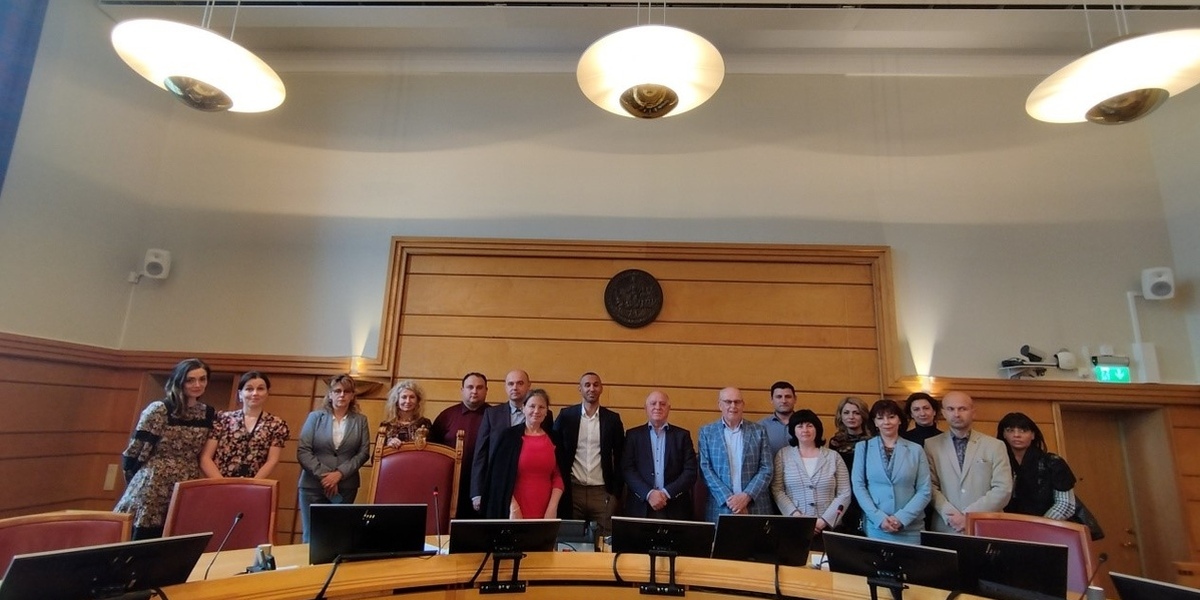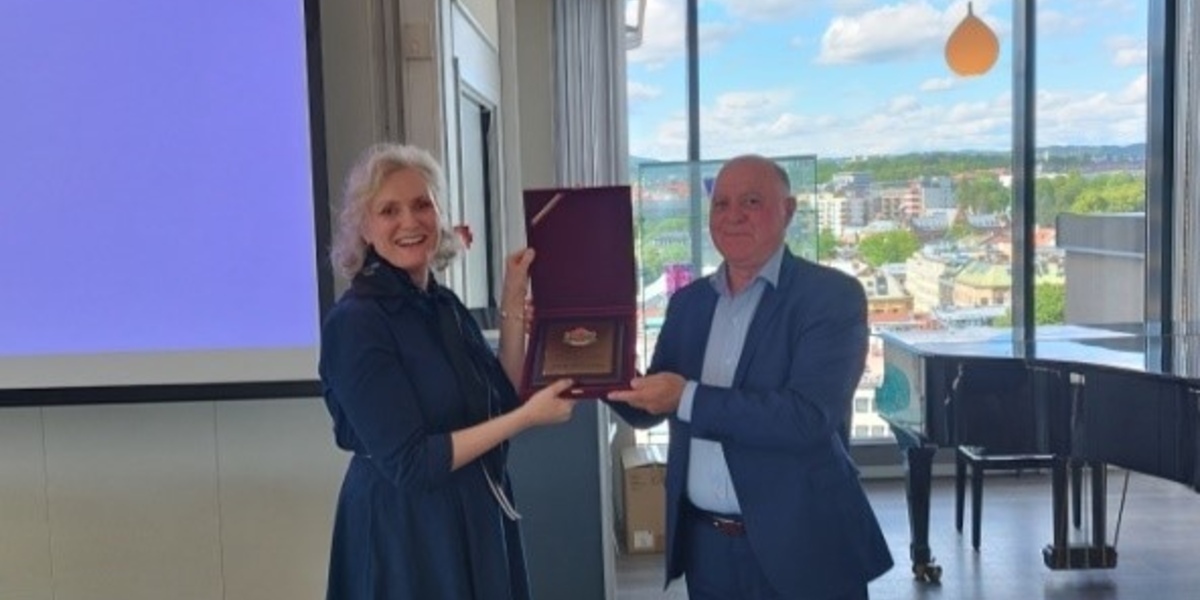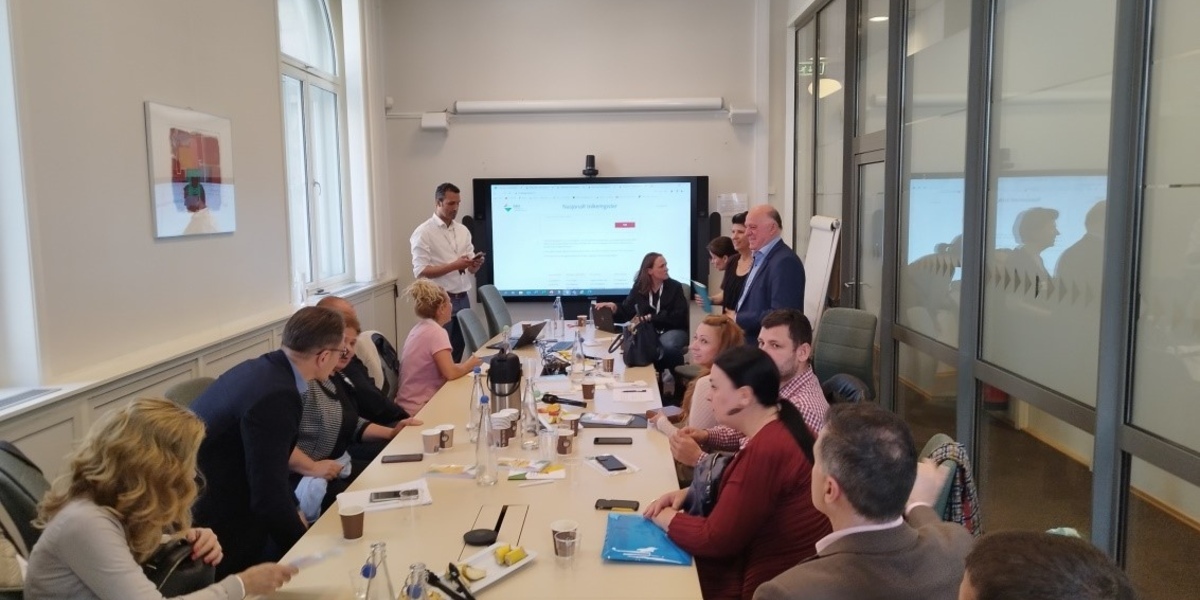06-07-2022 12:22
Magistrates from the country and representatives of the Supreme Judicial Council (SJC) conducted two working visits to Norway in the framework of the project “Strengthening the Professionalism in the Judiciary”, funded by the Norwegian Financial Mechanism and implemented by the SJC.
In Trondheim, judges and prosecutors at the supreme, regional and county levels were introduced to the existing practices and mechanisms for the selection, evaluation and career development of magistrates in Norway, the Norwegian Judicial Administration, its mandate, role and organization, the structure of the judiciary in the country, the various aspects of the manifestation of the principle of separation of powers in Norway, the introduced Register of extrajudicial activities of judges. Topics such as judicial statistics and their relevance for evaluation in the Norwegian judicial system, the Norwegian electronic case management system – LOVISA were discussed. An overview was given of the procedures for the appointment and evaluation of magistrates in the various EU Member States, the UK and the Nordic countries.
The working visit will serve as a basis for a comparative-legal study of the legal and normative means in Norway and other European countries in relation to the procedures for the appointment, selection and career development of magistrates, building on the activities already implemented in the Bulgarian judicial system and using good practices to improve the procedures in the national context.
The meetings were held in the building of the Norwegian Judicial Administration (NJA) and the Regional Court in Trondheim and the delegation, led by the representative of the SJC Boyan Magdalinchev, was welcomed by the Head of the International Secretariat of the Norwegian Judicial Administration, Iwar Arnstad.
During their visit to Oslo, 10 other magistrates conducted research on restorative justice mechanisms and drew on Norway’s experience with court interpreters.
They learned in detail about the organisation and provision of interpreting in the public sector in Norway, the tasks of the Integration and Diversity Directorate (IMDi), and the role of interpreters in the Norwegian courts - experiences and developments in recent years. The Norwegian National Register of Interpreters and the Interpreters Act adopted in early 2022 were presented, as well as the system for engaging interpreters for the courts. The Norwegian Judicial Administration’s system for engaging interpreters in courts was presented by Mrs Ingrid Olsen, Deputy Director General for Innovation and Court Development, Norwegian Judicial Administration. The delegation was introduced to the Norwegian model for the qualification and training of interpreters and visited OsloMet University, where the topics of restorative justice from a victimological perspective and the peculiarities of penitentiary systems in the Nordic countries were discussed. The topic of the particularities of the Norwegian juvenile penal system and the follow-up of juveniles from the perspective of the Prosecutor’s Office, as well as the role of correctional and probation services, mediation services and social services in juvenile offences were also addressed. Experiences, good practices and approaches in the Kingdom of Norway on the implementation of restorative justice mechanisms and court interpreters will be used in the analysis and development of proposals to improve the implementation of restorative justice and to improve the legal framework regarding court interpreters in Bulgaria.




